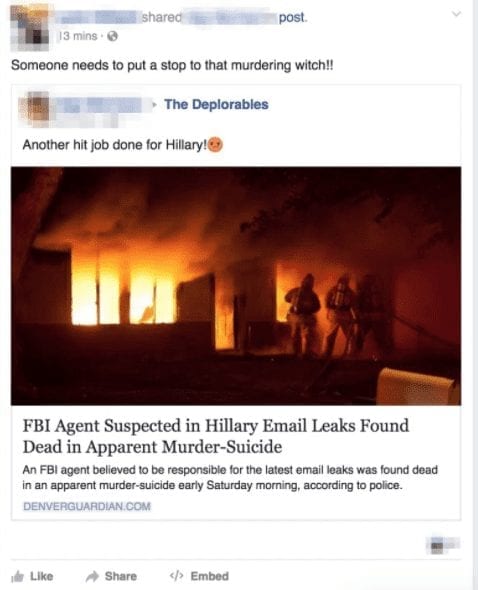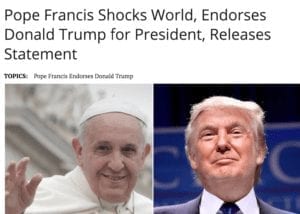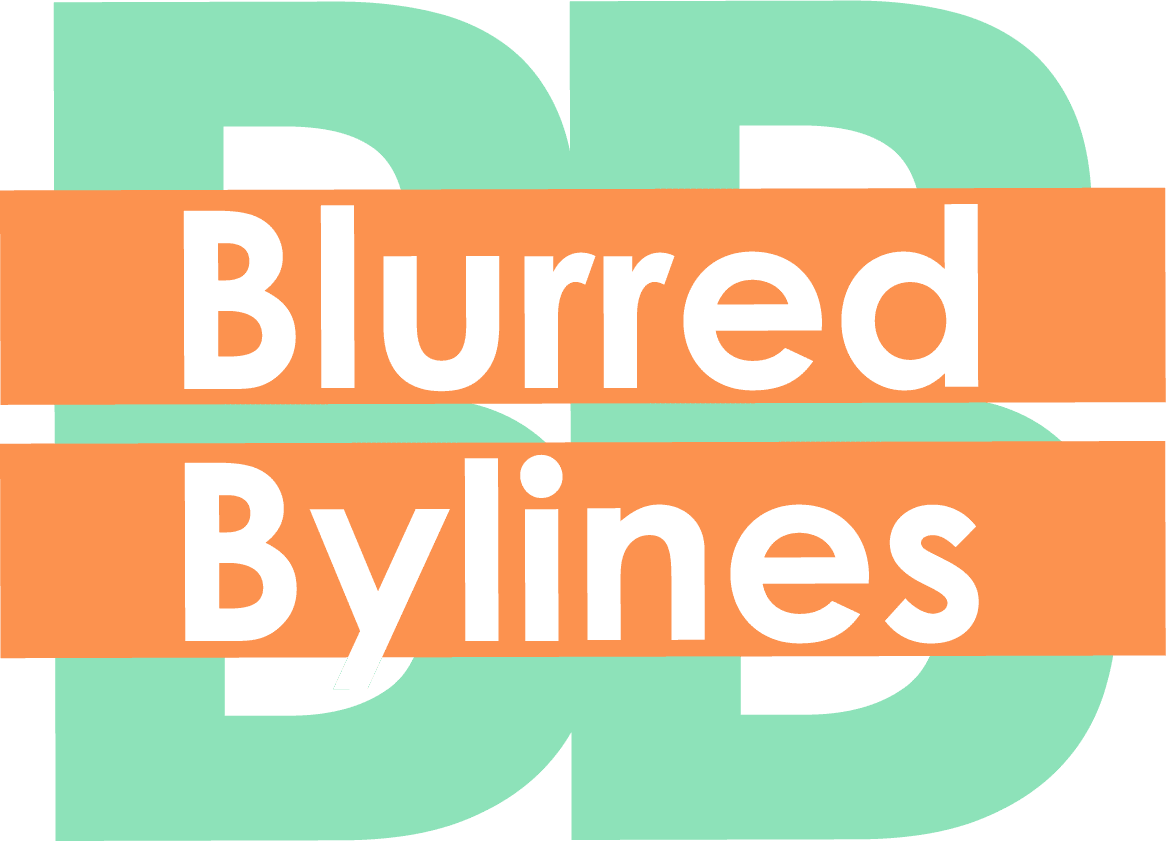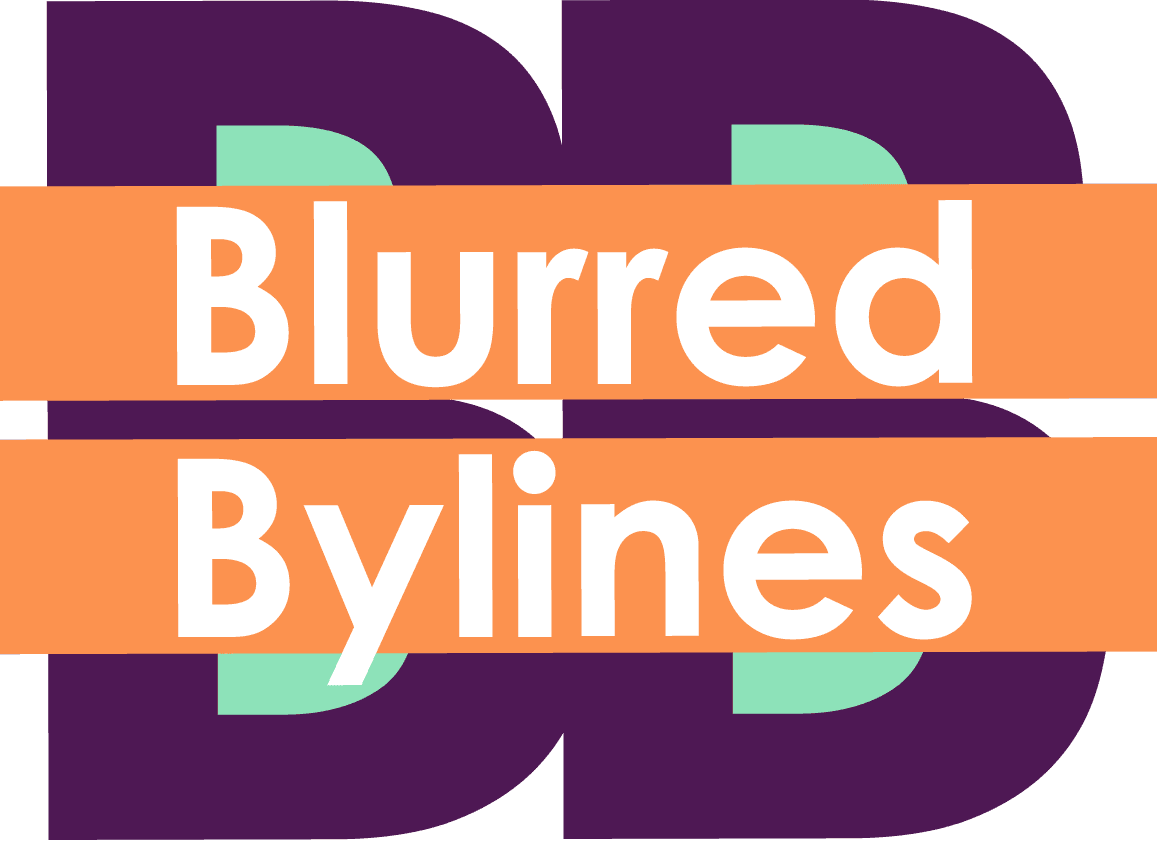A heated exchange between Donald Trump and CNN’s Jim Acosta at the president-elect’s press conference on Jan. 11 laid the groundwork for the potential to roll back press freedoms protected by the First Amendment.
“Your organization is terrible,” Trump thundered over Acosta as he attempted to do his job as a journalist and ask America’s next leader a question. “No, I’m not going to give you a question. I’m not going to give you a question,” Trump repeated.
But here’s one of the more troubling things Trump said to CNN’s Acosta during this exchange:
“You are fake news.”
Let’s back up a little bit. This is fake news:

Screenshot taken via Facebook of a highly popular – and false – Denver Guardian article from Nov. 5, 2016.
Fake news is essentially used to provoke outrage, anger, fear and even violence with no real consequences to its original creators. This is mainly because so many of these fake news producers don’t even live in the United States. What they write and share with the world are just giant blocks of BS spun into shiny gems that have the appearance of legitimacy.
And these little nuggets have changed countless minds in the United States.

Screenshot taken from fake site WTOE 5 News on July 10, 2026.
This shouldn’t need to be said, but here it is: CNN is not fake news. It’s an organization of educated and trained journalists following a code of ethics that compels them to verify sources and information, have their work scrutinized by multiple levels of editor, and ultimately have those stories distributed to the public after hours of labor have been dedicated to each article.
CNN released a statement reacting to Trump’s accusations of fake news, saying, “We are fully confident in our reporting … Given that members of the Trump transition team have so vocally criticized our reporting, we encourage them to identify, specifically, what they believe to be inaccurate.”

Screenshot taken from popular – and fake -World News Daily Report on Jan. 16, 2017.
The report that CNN is referring to is a two-page synopsis presented by top-level intelligence chiefs to Trump, which found that Russian operatives claim to have “compromising personal and financial information” on the president-elect.
It’s alarming enough that a foreign adversary may have the potential to blackmail the soon-to-be most powerful man on Earth. But to have that man deny trusted information and attack the source providing it to the public is perhaps the most unsettling part of all of this.
Now, the elephant in the room needs to be addressed. Buzzfeed messed up bigly and inadvertently gave journalists everywhere a black eye. On Jan. 10, Buzzfeed published an unverified story claiming Trump has deep ties to Russia, which includes the highly entertaining but also unverified, shall we say, unusual kind of leak.
But as entertaining as that story is – the internet certainly had its fun – it doesn’t change the fact that Buzzfeed broke one the most revered laws of journalism, which is to verify information from sources before going public.
When an organization refuses to do journalism right, we all suffer for it.
WHY THIS MATTERS
The free press is protected by the Constitution for a reason. A leader who believes he does not need to answer to anyone – who, historically, have been journalists – is no longer leading a democracy.
Let me repeat this for the people in the back: A country without an effective press stops being a democracy.
Trump isn’t even president yet and look at the precedent he’s setting. Whether you support his policies or not is irrelevant. America is the most powerful country in the world and it’s likely to be led by a man who doesn’t believe he needs to answer to its people.
This is really happening. And it cannot become normalized.
It’s going to take more than getting worked up on social media until the next Trump controversy comes along and we all forget about this one. This is more than controversy, a political gaffe or Trump having another hissy fit.
He is fundamentally changing this country and it’s occurring in ways that have devastating consequences for the future of democracy in America, and frankly, in the rest of the world. If this nation strays from its founding democratic principles, the world will follow.
WHAT YOU CAN DO
Support good journalism by subscribing to The New York Times, The Washington Post or your local paper for digital or print subscriptions.
Donate to Reporters Committee, a nonprofit dedicated to protecting freedom of the press.
Find and support local nonprofit news outlets near you.
Catch up on free press-related news in the U.S.
See what strong investigative reporting looks like at orgs like Poynter.
Follow Shari Rose on Twitter






0 Comments